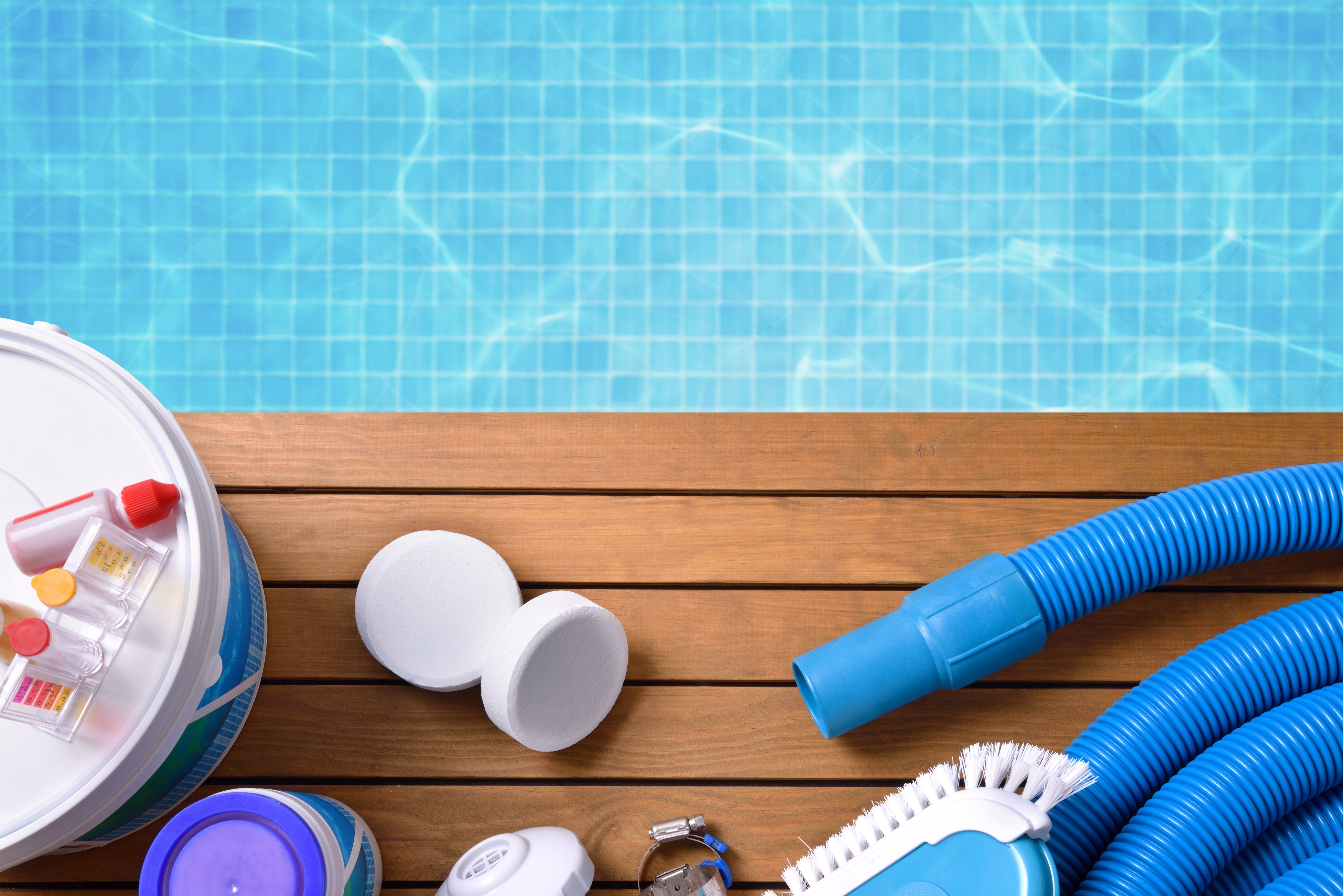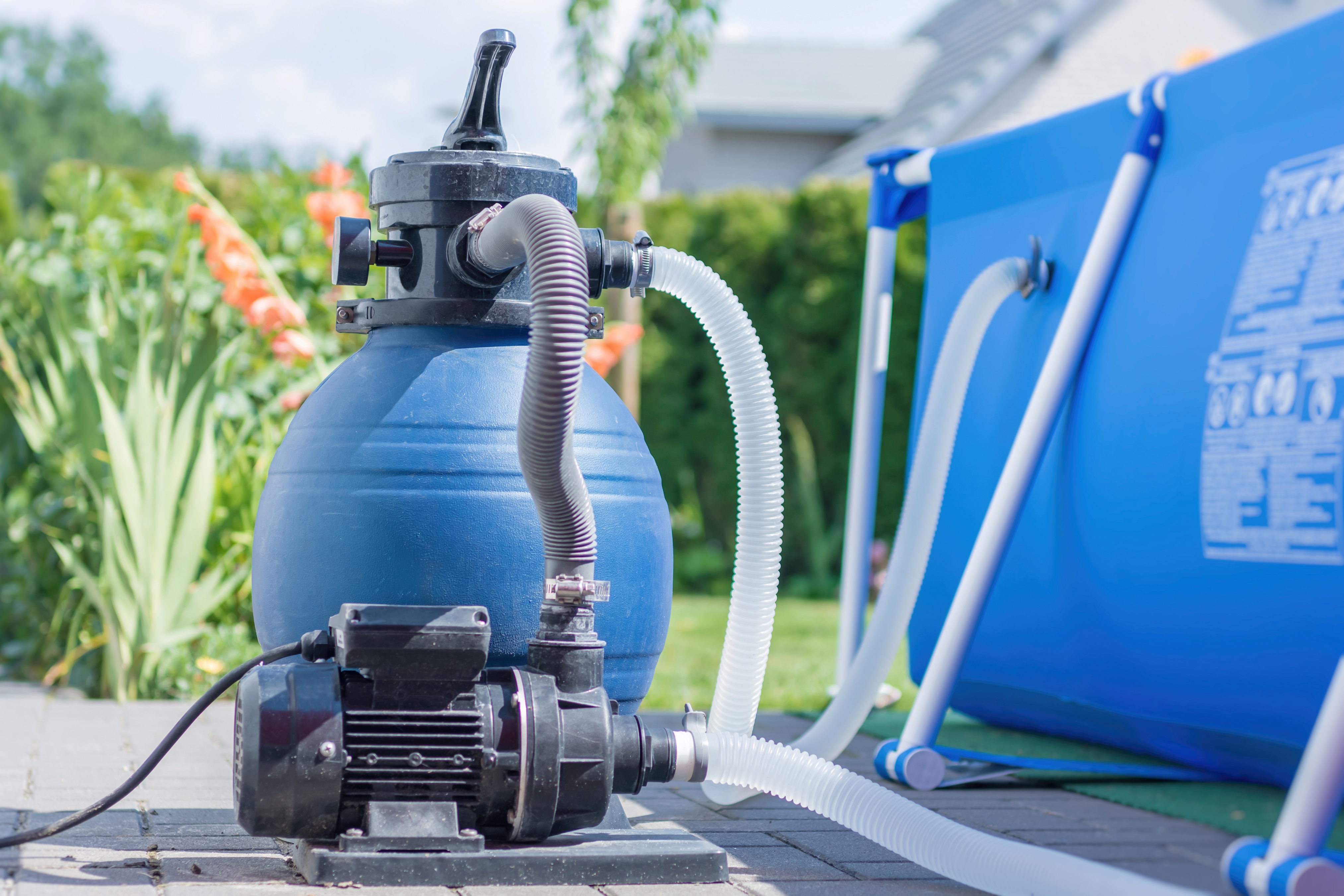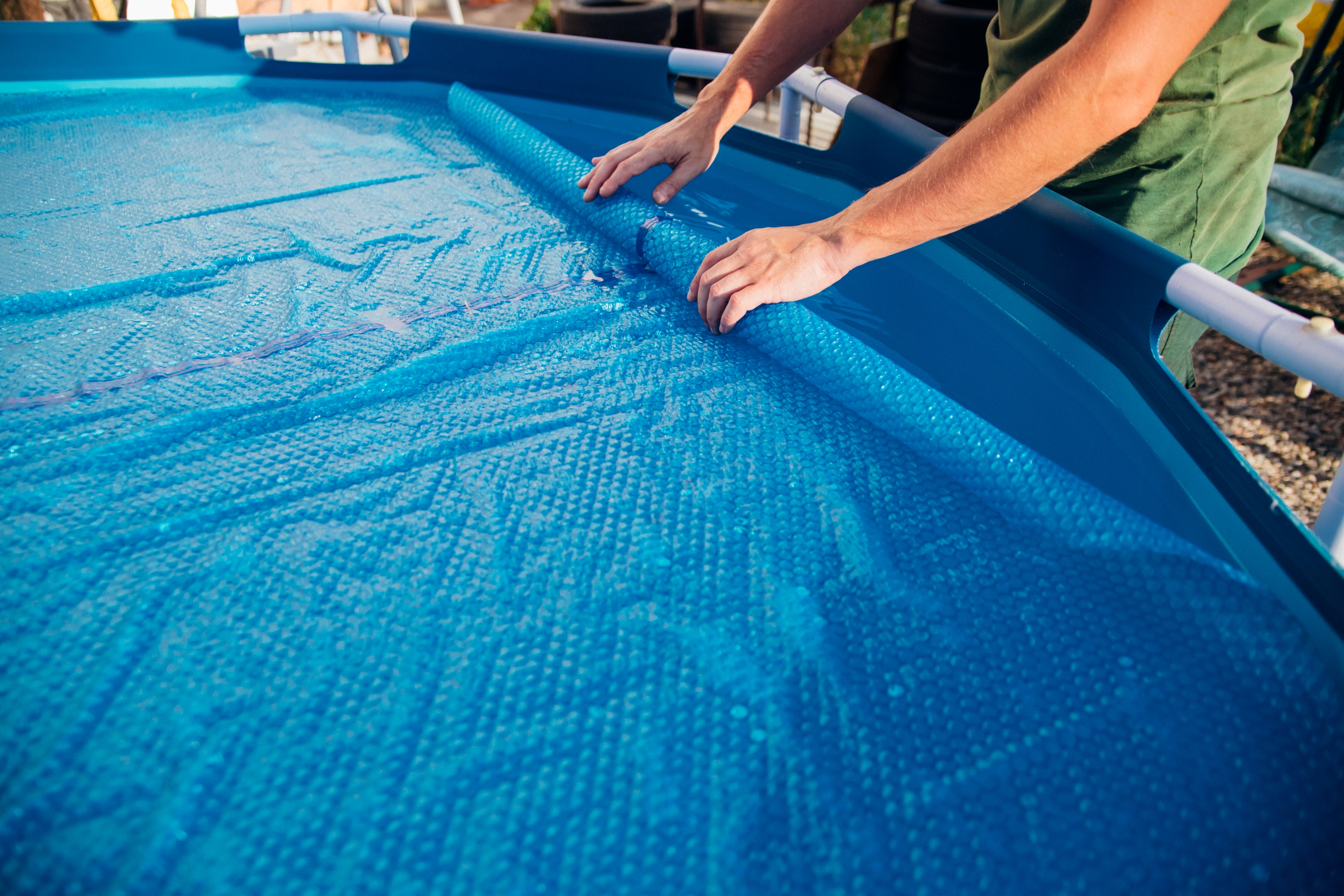Top 10 Pool Maintenance Mistakes (And How To Avoid Them)

Everyone wants their pool to be sparkling clean and always ready to take a dive. But that requires a certain level of careful maintenance to keep your pool ready for swimming. Many pool owners, especially those who are newer to owning a pool, make the same maintenance mistakes that can lead to damage, health risks, or high repair costs.
We have gathered together ten of the most common mistakes pool owners make when it comes to maintaining their pool, and our expert tips on how to help you avoid them.
1. Not Brushing Your Pool
Why it's a problem
Vacuuming your pool is essential, but it's just as important to brush your pool manually. Algae, bacteria, and other debris accumulate and grow on pool walls, ladders, and steps, especially in corners that pool vacuums struggle to reach. Over time, these create slimy patches and discolored spots that are harder to clean and breed algae blooms.
Quick Fix:
Brush the walls and floor of your pool weekly, especially near your stairs, ladders and skimmers, where algae likes to accumulate. If you have a vinyl liner, use a nylon brush; and if you have a concrete pool, then use a stainless-steel one. Make sure to brush behind ladders, the waterline, your steps and stairs, and any corners and crevices of your pool.
This doesn't mean you should ignore vacuuming your pool. Vacuuming prevents algae and other debris from settling in your pool, while brushing prevents it from growing.
Pro Tip:
Brush your pool, and then either vacuum or run your automatic cleaner to collect any loosened debris.
2. Ignoring pH and Alkalinity Levels
Why it's a problem:
A balanced pH is critical for the health of your pool. A low pH means that your water will become overly acidic. Conversely, a high pH will affect your alkalinity. Too much of either can be bad for your pool in different ways.
Water with a low pH will corrode or dissolve metals and other substances that can be harmful not only to your pool but also to your pool equipment. A high pH will cause you skin rashes, cloudy water, and scaling on your pool equipment.
Quick Fix:
Test your pH and alkalinity levels weekly. Any minor changes can skew your water chemistry quickly, so regularly testing your pool water is essential. Aim for a pH level between 7.2 and 7.6, and a total alkalinity between 80 - 120 ppm.
If your levels are off, then adjust them with pH increaser, alkalinity increaser, and any other essential chemicals until your pool water is well balanced.
For a more in-depth guide to balancing your pool water, check out our blog: How To Balance Pool Water: Step-by-Step Guide To Perfect Pool Chemistry.
Pro Tip:
If your pH keeps drifting, then check your alkalinity first. Often, fixing that will stabilize your pH.

3. Not Running Your Pump Long Enough
Why it's a problem:
Your pool pump is what pulls water through your pool filter, and if it's not running, then your pool filter can't do its job. Dirt, debris, and bacteria aren't fully filtered out, leading to murky water or algae growth. The more your filter runs, the fewer contaminants can survive in your pool. Running your pool pump also helps to distribute the chemicals in your pool evenly. This is a pretty minor mistake to make, but it's important to rectify.
Quick Fix:
Run your pool for at least 8 - 12 hours per day during the swimming season. The larger your pool is, the longer you will have to run the filter, as the filter needs enough time for all the water to pass through the filter and be cleaned
Pro Tip:
Using a variable-speed pump can help you save energy, as you can run it for longer at a lower speed for better efficiency and cleaner water.
4. Not Cleaning Your Filter
Why it's a problem:
Cleaning and maintaining your pool are two vital aspects of owning a pool. This includes maintaining your pool equipment! If your filter is dirty or clogged, then it reduces the circulation and efficiency, which allows contaminants to build up in the water. In addition, a clogged water filter will increase the PSI, which puts more pressure on the pump and reduces it's effectiveness.
Quick Fix:
Even though sand and D.E. filters do catch more debris when they are slightly dirty, they should still be backwashed when the pressure rises 8 - 10 PSI above the norm. Clean cartridge filters monthly, or as recommended by the manufacturer, and change the cartridges according to the manufacturer.
Pro Tip:
Keep a note of your "clean filter pressure" of your filter so you can make sure you know precisely when to backwash.
5. Over or Under Shocking Your Pool
Why it's a problem:
If you use too much shock, you can damage the liners of your pool and irritate your skin if you swim in it. If you undershock your pool, it won't be a high enough dose to kill bacteria or algae.
Quick Fix:
Shock your pool every week, or after there's been an increased use of your pool or a storm. Always follow the dosage instructions based on the size of your pool. Make sure to dissolve the shock in a bucket before adding to avoid bleaching the liner.
Pro Tip:
Always shock at night or in the evening so sunlight doesn't break down the chlorine too quickly.

6. Not Testing Your Water Regularly
Why it's a problem:
You can't balance your water without knowing the current condition of your water. Guessing the levels of your water will lead to an imbalance in the water, which can cause eye irritation, algae, or scaling. Weekly water testing is one of the most critical items on a list of pool maintenance tasks, as it can let you know about minor issues before they become disastrous
Quick Fix:
Make sure you test your water at least once a week, but preferably 2 - 3 times a week, either with test strips or a liquid test kit. You don't need a complete chemical analysis every week, but make sure to check your pH, alkalinity, and free chlorine levels.
For a more in-depth guide to balancing your pool water, check out our blog: How To Balance Pool Water: Step-by-Step Guide To Perfect Pool Chemistry.
Pro Tip:
Keep a log of all your test results to spot patterns, which is beneficial during the changing of the seasons.
7. Adding Chemicals At The Wrong Time
Why it's a problem:
Adding chlorine or shock during the day can reduce its effectiveness due to UV rays. Shock is actually unstabilized chlorine, which means it will burn off at up to 1 ppm per hour in the sun, reducing the efficiency of your chemicals. Mixing chemicals too quickly, or if your circulation is poor, can cause reactions with each other that can be damaging to you or your pool.
Quick Fix:
Add your chemicals in the evening, or when the sun is down, to give them time to clean your pool. To prevent unwanted reactions between chemicals, add one chemical at a time and wait at least 4 hours between additions (or follow the instructions on the product).
Pro Tip:
Dissolve powdered chemicals in a bucket of water before adding them to your pool to prevent them from clumping or damaging any of your surfaces.
8. Wearing Non-Swimsuits in the Pool
Why it's a problem:
While wearing your street clothes in the pool once or twice won't ruin your pool, it's recommended that you don't wear your street clothes in the pool for extended periods. While you're wearing your outfits for the day, they gain contaminants, which you then put into your pool. Not only that, but the chemicals in your water could ruin your clothes.
Quick Fix:
Only wear swimming clothes when you're swimming, to avoid compromising both your water and the color of your clothes.
Pro Tip:
Keep a few extra swimsuits on hand so you're never tempted to go into the pool in your street clothes. If you need sun protection or modest coverage, use swim-specific cover ups that are designed to go into chlorinated water.

9. Not Covering The Pool
Why it's a problem:
A pool that remains uncovered collects debris faster, loses heat overnight, and wastes water through evaporation. Chlorine will also be broken down much quicker as sunlight breaks it down.
Quick Fix:
Use a solar blanket or safety cover when you're not swimming. It keeps debris out, heat in, and chemical usage down.
Pro Tip:
A solar cover can also help raise your pool temperature by 15°F, which can help you save on artificial heating costs.
10. Neglecting Off-Season Maintenance
Why it's a problem:
If you close your pool and just forget about it until the spring, then when you open it back up, you could face algae blooms, staining, and even cracked equipment from the water inside it freezing.
Quick Fix:
During the winter season:
- Check the water level and cover condition monthly
- Remove standing water and debris from the cover
- Test and adjust the chemistry at least once a month
Pro Tip:
Consider investing in a winter chemical kit to keep your water balanced until it's opened again






 Pools
Pools Spas
Spas Liners
Liners Equipment
Equipment Covers
Covers Accessories
Accessories Cleaning
Cleaning  Pool Fun
Pool Fun  Clearance
Clearance



